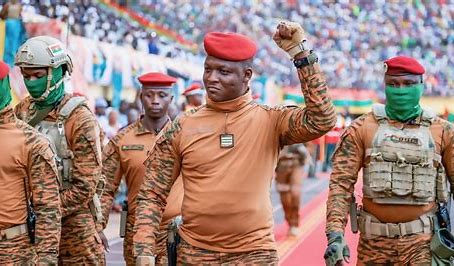Prof. Kwesi Aning, Head of the Office for International Cooperation at the Kofi Annan International Peacekeeping Training Centre (KAIPTC), has claimed that Burkina Faso’s President, Ibrahim Traoré, is facing criticism from the West because he prioritizes the needs of his people over foreign interests.
Prof. Aning argued that Traoré and other leaders in the Sahel region are redefining governance and development across West Africa by reclaiming national resources for local benefit.
He likened Traoré’s political ideology to that of Ghana’s first president, Dr. Kwame Nkrumah, and other early pan-Africanist leaders, suggesting that today’s Sahelian leadership is reviving the vision of African self-determination and sovereignty.
“The real issue with Ibrahim Traoré and his counterparts is that they are using their countries’ resources to uplift their people,” Prof. Aning stated. “He represents a convergence of two historical epochs—drawing from Nkrumah and other visionary African leaders—to champion a pan-African stance that challenges the status quo.”
According to him, Traoré, along with the leaders of Mali and Niger, is pushing a new narrative that questions traditional notions of development and security, while promoting African-led solutions.
Prof. Aning also took aim at Western nations, accusing them of failing to curb violent extremism in the region despite their longstanding presence and involvement.
“These Western countries, who are now loudly concerned about terrorism and extremism, have been operating in these regions for decades without solving the problem,” he said. “Ironically, since these new leaders came to power, we’ve seen terrorist groups become more sophisticated—better armed, more mobile, and more informed. So the question is: where is this enhanced capability coming from?”


